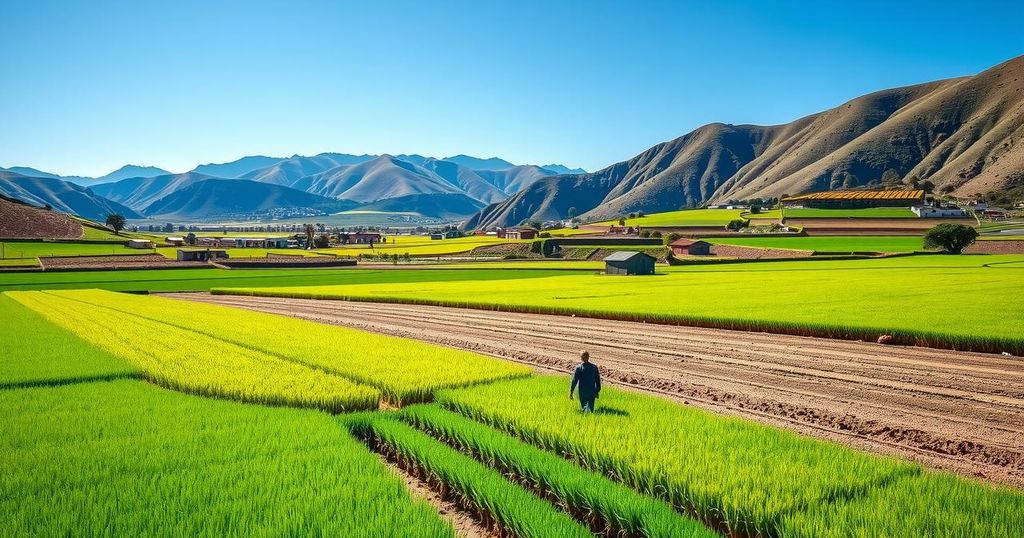Peruvian Farmer’s Case in German Court Could Set Climate Liability Precedent
Saul Lliuya, a Peruvian farmer, is involved in a legal case in Germany that examines the responsibility of the energy company RWE for damages related to climate change. The case could set a precedent for corporate accountability in climate-related lawsuits. Judges visited Peru’s glacial lakes to assess potential flood risks linked to global warming.
In a significant case in a German court, Peruvian farmer Saul Lliuya is pursuing a lawsuit that could redefine corporate accountability in relation to climate change. This hearing investigates whether climate change, driven by human activities, is directly linked to the imminent threat of catastrophic flooding in Peru, specifically from glacial lakes.
As part of the proceedings, German judges, along with court-appointed experts, recently visited a glacial lake in Peru’s Cordillera Blanca mountain range. The objective of this visit was to evaluate the liability of RWE, Germany’s largest electricity provider, concerning its contribution to climate change and the ensuing risks faced by Peru.
The lawsuit is pivotal, especially in light of ongoing climate challenges in Peru, where severe droughts in the Andes have devastated essential crop harvests like potatoes and corn. Researchers have attributed these extreme weather patterns to phenomena such as El Niño and broader climate change trends, underscoring the interconnectedness of global climate impacts.
This case not only highlights the risks posed by melting glaciers but also represents a landmark moment in climate law, potentially establishing a legal precedent for holding corporations accountable for climate-related damages across the globe.
In summary, the case of Saul Lliuya in a German court represents a potentially groundbreaking moment for climate litigation, examining corporate responsibility for climate change-related damages. The visit of German judges to the Peruvian glacial lakes symbolizes a thorough investigation into claims against RWE, signifying the urgent need to address climate impacts on vulnerable regions worldwide. Additionally, the ongoing drought conditions in the Peruvian Andes further illustrate the dire consequences of climate change, bringing forth significant economic and agricultural implications.
Original Source: america.cgtn.com




Post Comment